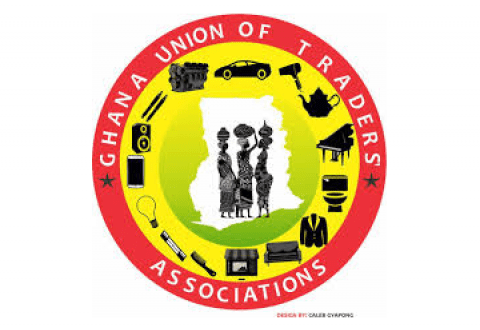The Ghana Union of Traders Association (GUTA) is leading a spirited charge for major reductions in lending rates ahead of the 2026 Budget presentation.
The move is part of broader private-sector efforts to influence the country’s economic direction between 2026 and 2029, with businesses calling for cost-cutting reforms, improved financing access, and targeted incentives to boost productivity.
The Ministry of Finance has opened the floor for proposals towards the 2026–2029 Budget Statement and Economic Policy, inviting contributions from business associations, professional bodies, financial institutions, civil society organisations, faith-based groups, and the general public. The submission deadline is set for August 29, 2025, with the budget scheduled to be presented to Parliament on November 15.
Historically, private-sector recommendations have shaped government policy, and business leaders are determined to seize the opportunity again this year. GUTA, in particular, is placing lending rates at the top of its advocacy list, citing their crippling impact on the cost of doing business.
Lending Rates Remain Stubbornly High
Speaking on the association’s budget priorities, GUTA Public Relations Officer, Joseph Paddy, said that despite recent macroeconomic improvements, high interest rates remain a significant barrier to business growth.
“We’ve seen the policy rate dropping. We’ve seen inflation dropping, but we’re still not seeing this growth reflected in interest rates, which keeps the cost of doing business high.”
Joseph Paddy
The Bank of Ghana has gradually reduced its policy rate over the past year in response to falling inflation. However, commercial banks have not mirrored these cuts at the same pace, leaving borrowing costs high for businesses. According to GUTA, this disconnect between the policy rate and lending rates is stifling investment and expansion, especially for small and medium-sized enterprises (SMEs).
To tackle the issue, GUTA is calling for regulators to set a clear margin between the policy rate and commercial lending rates — not more than 5% or 6%. This, they argue, would ensure that monetary policy gains are passed on to businesses in real terms. “We propose that regulators enforce a maximum spread so that when the central bank reduces the policy rate, lending rates follow suit,” Paddy said.
The association also wants the government to review port charges, which they say are adding to the financial strain on importers and exporters. Lowering these fees, according to GUTA, would encourage compliance with the tax regime while reducing overall business costs.
AGI Calls for 24-Hour Economy Incentives
The Ghana Union of Traders is not alone in pushing for reforms. The Association of Ghana Industries (AGI) is also using the budget submission window to press for support, particularly for the government’s flagship 24-hour economy policy.
Greater Accra Regional Chairman of AGI, Tsonam Akpeloo, said the association would be proposing clearly defined incentives to make the 24-hour economy a reality.
“We would like to see details on financing and incentives for the 24-hour economy programme — specific tax rebates, holidays, and financial support, including access to affordable financing.”
Tsonam Akpeloo

The AGI believes that extended operations can stimulate industrial output, create jobs, and improve export competitiveness — but only if businesses are given the right policy and financial backing.
The Ministry of Finance faces the challenge of balancing these private-sector demands with fiscal sustainability. While lending rate cuts and tax incentives can drive growth, they could also reduce government revenue in the short term. Economists argue that the key will be to design reforms that spur economic expansion quickly enough to offset the initial revenue dip.
The private sector, however, insists that without bold measures, Ghana risks losing momentum in its post-crisis recovery. Both GUTA and AGI point to the recent drop in inflation and policy rate as an opportunity to make financing cheaper, stimulate investment, and create an environment where the government’s industrialisation agenda can thrive.
With the submission deadline fast approaching, business groups are fine-tuning their proposals. The Ministry has confirmed that past contributions have shaped key policy directions, including tax reforms and SME support initiatives, meaning this year’s submissions could carry significant weight.
If the government heeds GUTA’s call for lending rate cuts and AGI’s push for targeted incentives, the 2026–2029 Budget could mark a decisive shift towards a more private-sector-led growth strategy.
READ ALSO: Oil Prices Begin the Week with a Fall Ahead of U.S.–Russia Talks





















